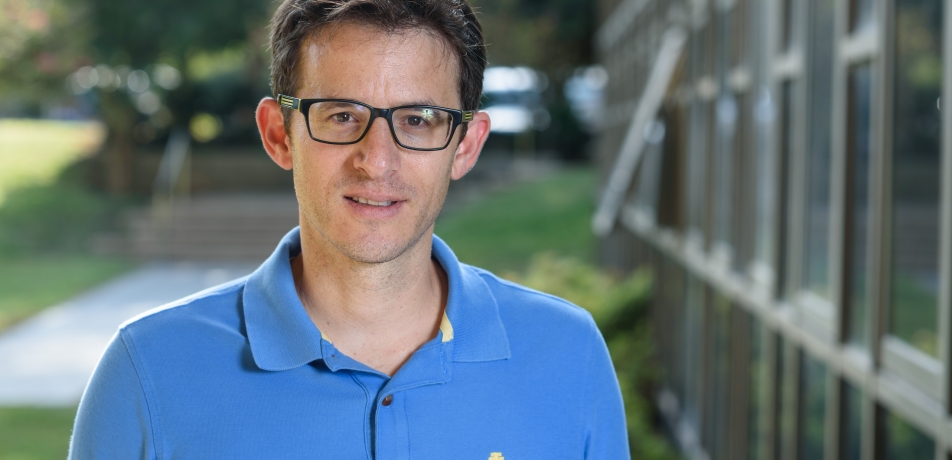Personalized science education
Dr. Giora Alexandron is developing algorithmic approaches to track students' knowledge
New scientists

Dr. Giora Alexandron
Can data mining and artificial intelligence techniques—which have been so profitable for the business world—make a positive contribution to the world of education? According to Dr. Giora Alexandron, the answer is yes.
Dr. Alexandron’s work draws on learning theory, artificial intelligence, data mining, and human-computer interaction, as well as the cognitive and behavioral sciences, in order to build better online content and more effective digital learning environments. Seeking to improve computer-based instruction while lowering its cost, Dr. Alexandron’s methods can be applied to Massive Open Online Courses (MOOCs) attended virtually by an unlimited number of students, as well as to mixed online-offline settings like K-12 classrooms.
He is developing algorithmic approaches to track students’ knowledge based on their digital footprint. Such “smart” tracking enables a system to generate real-time recommendations for personalized learning activities, based on students’ level of understanding as well as teacher-defined goals. Similar algorithms provide feedback to content developers, allowing them to optimize the course design.
Dr. Alexandron recently collaborated on a computational approach for detecting and preventing large-scale cheating in MOOCs. While most people who sign up for MOOCs usually do so in good faith, Dr. Alexandron and his colleagues discovered that a significant number of users hack the system, use fake accounts to harvest correct answers, and then submit them for credit. By combining data mining and intervention in course design, their research demonstrated how such cheating can be reduced.
Dr. Alexandron is also promoting computer science education. He recently developed a pilot course that was shown to improve high school students’ understanding of fundamental computer science concepts.
An industry veteran who has been associated with a number of start-up companies, Dr. Alexandron served as a leader of Green Course, a student-run environmental organization, during his PhD studies at the Institute. Together with scientists, dieticians, and public health experts, he helped establish the Israeli Forum for Sustainable Nutrition, a think tank for developing sustainable food policies.
In his new position in the Department of Science Teaching, he is looking forward to further collaborations.
Bio
Dr. Giora Alexandron joined the Department of Science Teaching in November 2017 after working as the Principal Data Scientist of the Center for Educational Technology in Tel Aviv. Prior to that, he was a postdoctoral researcher in the Physics Department at the Massachusetts Institute of Technology. He holds a PhD in computer science education from the Weizmann Institute of Science (2014), an MSc in computer science from Tel Aviv University (2005), and a BA in computer science from the Academic College of Tel Aviv-Yafo (2001).
His academic honors include a Feinberg distinction award for PhD studies at the Institute in 2015, a two-year PhD fellowship grant from the Azrieli Foundation from 2012 to 2014, and the Award of Excellence in MSc studies from the School of Computer Science at Tel Aviv University in 2005. He serves on the program committee of several international conferences in the fields of educational data mining and learning technologies.
Dr. Alexandron is married and has two daughters. He was born and raised on a kibbutz in the Upper Galilee.
Dr. Giora Alexandron is supported by the Willner Family Leadership Institute for the Weizmann Institute of Science, the Iancovici-Fallmann Memorial Fund, established by Ruth and Henry Yancovich, and the Ullmann Family Foundation.








